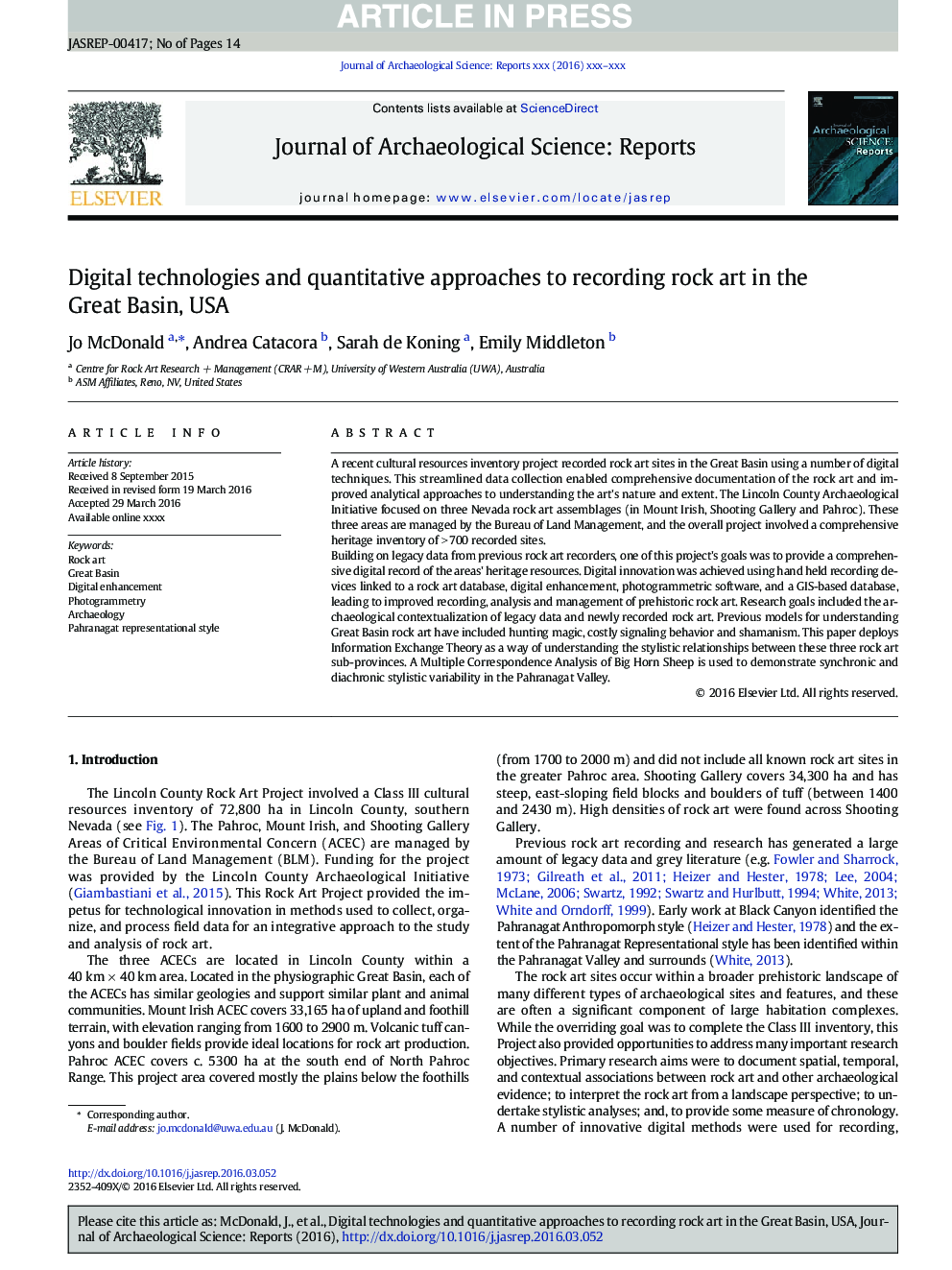| Article ID | Journal | Published Year | Pages | File Type |
|---|---|---|---|---|
| 5112219 | Journal of Archaeological Science: Reports | 2016 | 14 Pages |
Abstract
Building on legacy data from previous rock art recorders, one of this project's goals was to provide a comprehensive digital record of the areas' heritage resources. Digital innovation was achieved using hand held recording devices linked to a rock art database, digital enhancement, photogrammetric software, and a GIS-based database, leading to improved recording, analysis and management of prehistoric rock art. Research goals included the archaeological contextualization of legacy data and newly recorded rock art. Previous models for understanding Great Basin rock art have included hunting magic, costly signaling behavior and shamanism. This paper deploys Information Exchange Theory as a way of understanding the stylistic relationships between these three rock art sub-provinces. A Multiple Correspondence Analysis of Big Horn Sheep is used to demonstrate synchronic and diachronic stylistic variability in the Pahranagat Valley.
Related Topics
Social Sciences and Humanities
Arts and Humanities
History
Authors
Jo McDonald, Andrea Catacora, Sarah de Koning, Emily Middleton,
